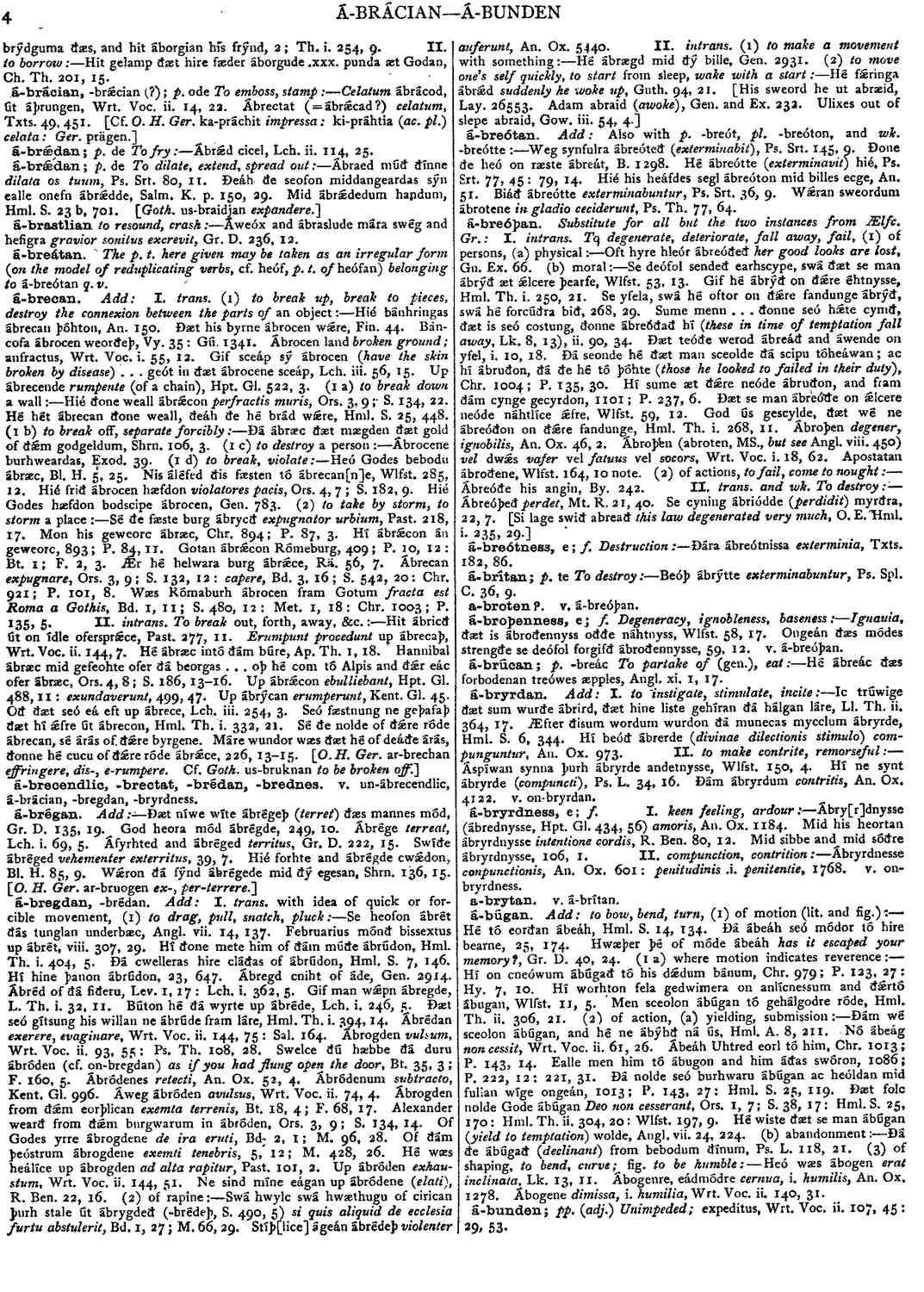á-breóþan
- verb
-
Oft hyre hleór ábreóðeð
her good looks ore lost,
- Gn. Ex. 66.
-
Se deófol sendeð earhscype, swá ðæt se man ábrýð æt ǽlcere þearfe,
- Wlfst. 53, 13.
-
Gif hé ábrýð on ðǽre éhtnysse,
- Hml. Th. i. 250, 21.
-
Se yfela, swá hé oftor on ðǽre fandunge ábrýð, swá hé forcúðra bið,
- 268, 29.
-
Sume menn . . . ðonne seó hǽte cymð, ðæt is seó costung, ðonne ábreóðað hí (
these in time of temptation fall away,
- Lk. 8, 13), ii. 90, 34.
- Ðæt teóðe werod ábreáð and áwende on yfel, i. 10, 18.
-
Ðá seonde hé ðæt man sceolde ðá scipu tóheáwan; ac hí ábruðon, ðá ðe hé tó þóhte
(those he looked to failed in their duty
),- Chr. 1004; P. 135, 30.
-
Hí sume æt ðǽre neóde ábruðon, and fram ðám cynge gecyrdon,
- 1101; P. 237, 6.
-
Ðæt se man ábreóðe on ǽlcere neóde náhtlíce ǽfre,
- Wlfst. 59, 12.
-
God ús gescylde, ðæt wé ne ábreóðon on ðǽre fandunge,
- Hml. Th. i. 268, 11.
-
Ábroþen
degener, ignobilis,
- An. Ox. 46, 2.
-
Ábroþen (abroten, MS., but see Angl. viii. 450) vel dwǽs vafer vel fatuus vel
socors,
- Wrt. Voc. i. 18, 62.
-
Apostatan ábroðene,
- Wlfst. 164, 10 note.
-
Ábreóðe his angin,
- By. 242.
-
Ábreóþeð
perdet,
- Mt. R. 21, 40.
-
Se cyning ábriódde (perdidit) myrðra, 22, 7. [Si lage swið abreað
this law degenerated very much,
- O. E. Hml. i. 235, 29.
Bosworth, Joseph. “á-breóþan.” In An Anglo-Saxon Dictionary Online, edited by Thomas Northcote Toller, Christ Sean, and Ondřej Tichy. Prague: Faculty of Arts, Charles University, 2014. https://bosworthtoller.com/37386.
Checked: 0